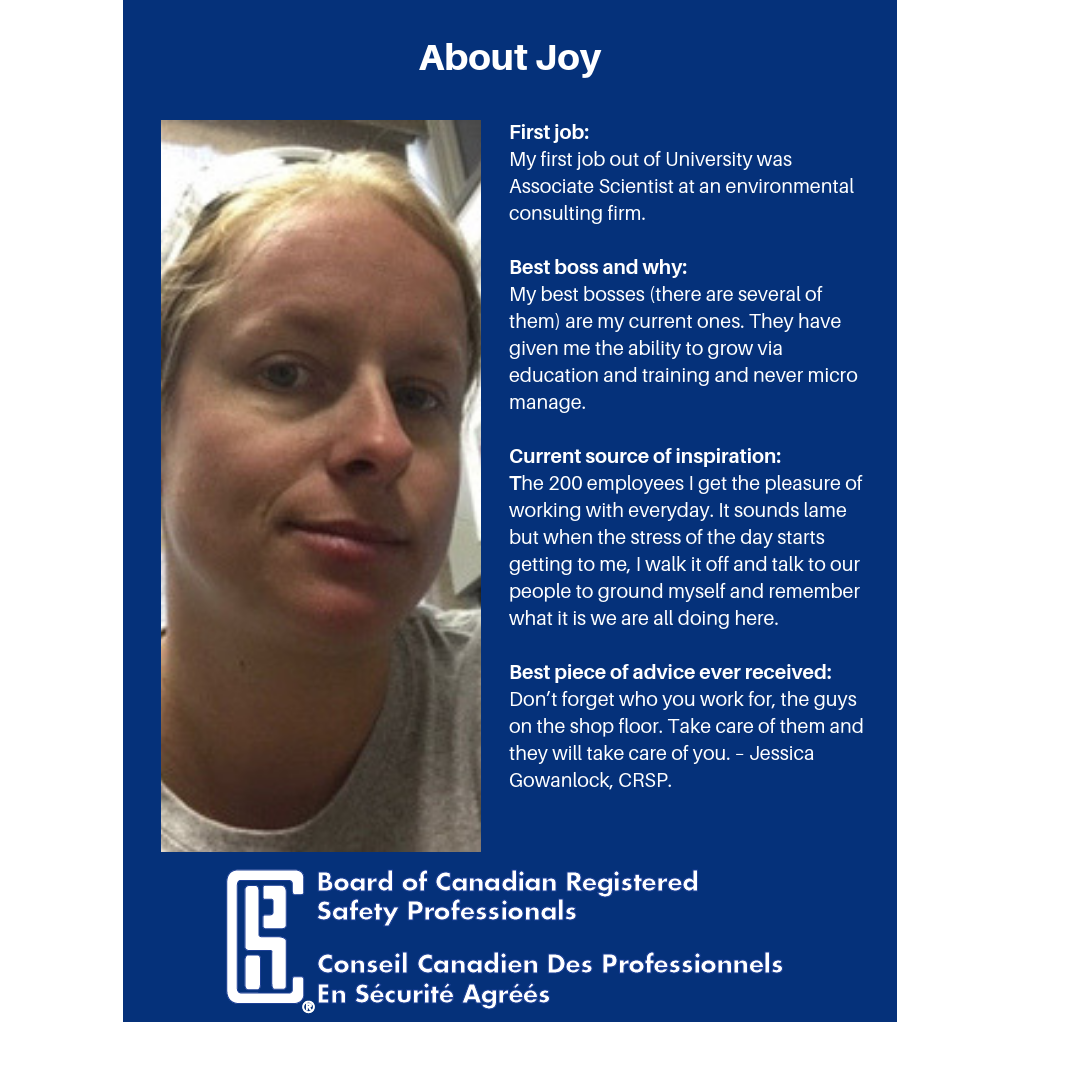When did you decide you wanted a career in occupational health and safety?
I was working up north in a fly in only community and we had a serious incident. Our ERP was untested, our communication abilities were questionable at best and even though I was a seasoned supervisor, I did not have a clue how to handle the situation. No one had ever trained me on what my responsibilities/liabilities as a supervisor were in a situation like this. No one had ever discussed with me what a “serious incident” really was. I have spent the better part of my career as a safety professional ensuring that people around me have the education I lacked on that day.
What was your first occupational health and safety position?
My first occupational health and safety position was working up north on a heavy construction project. I was the environmental officer but my safety officer quit mid job and I was then given those responsibilities as well. Luckily, the company I worked for had a good safety culture so it was not completely overwhelming.
Tell me about your current job. What are your main areas of responsibility?
Currently, I am the environmental supervisor for a steel foundry. In addition to my environmental responsibilities, I am also responsible for industrial hygiene, training, and the bulk of the preventative safety program.
What do you love about your job?What's the best part of your day?
No two days are alike in manufacturing. Time is money and everything moves very fast. That means that I need to move even faster and that is really exciting and challenging.
The best part of the day is when I see a supervisor doing a coaching moment with an employee on a safety issue. When I started at my current job the knowledge base across the board was not where it needed to be. We have spent the last 4 years and many hours educating our managers, supervisors and employees. Now they are educating each other, and communication is much more free flowing. We still have our struggles and there is still a long way to go but considering where we were, those moments make me proud.
What are the challenges you experience in your job?
The biggest challenge I face is time. If the day could have 36 hours instead of 24 that would be great. It is a constant struggle between getting to spend time on the floor and time at the desk the former being my preference.
What skills are important for success in the OHS field?
It has always been my position that the most important skill any safety professional can bring to the table is an open mind. With so many balls constantly being juggled (operations, quality, maintenance, compliance, etc.), if you cannot approach a problem with an open mind you are unlikely to be successful.
Secondly, the ability to facilitate is another under valued skill that all safety professionals should possess. One of my favourite speakers, Nancy Tennant, often says “say more.” Drawing out people’s thoughts so they can come to their own solutions is a special art that few possess, but I believe it is fundamental to the profession. Try it at your next safety meeting.
Lastly, grit. This is not a profession for the faint at heart. There will be hard days. There might even be injuries. But hopefully, the good days make the bad days worth it.
What tips do you have for new grads or those in entry level OHS positions who want to move up the ladder?
- You catch more flies with honey than vinegar. Give people the benefit of the doubt. No one wants to get hurt at work. If an employee is doing something wrong, there is probably a reason.
- Never be afraid to tell someone you don’t have the answer immediately. You are not Google and it is acceptable to look it up and get back to them at a later date.
- Network as much as you can - it really does take a village.
The OHS field has been evolving. What changes excite you most?
There is a lot of great technology coming into the field allowing us to act in real time rather than collecting data and reacting after the fact. Telling an employee they were over exposed 2 weeks ago vs. detecting exposures in real time and preventing over exposures is a game changer.
In your opinion, what’s the future of the OHS profession?
I hope that we are all working our way out of jobs however people continue to get hurt at work. I would like to see health and safety integrated into schools. Especially at the high school level.
What do you do when you are not working?
When I’m not working I am generally studying and listening to lectures as I am pursuing my Masters in Industrial Hygiene. I also like to crochet, garden and go camping.

